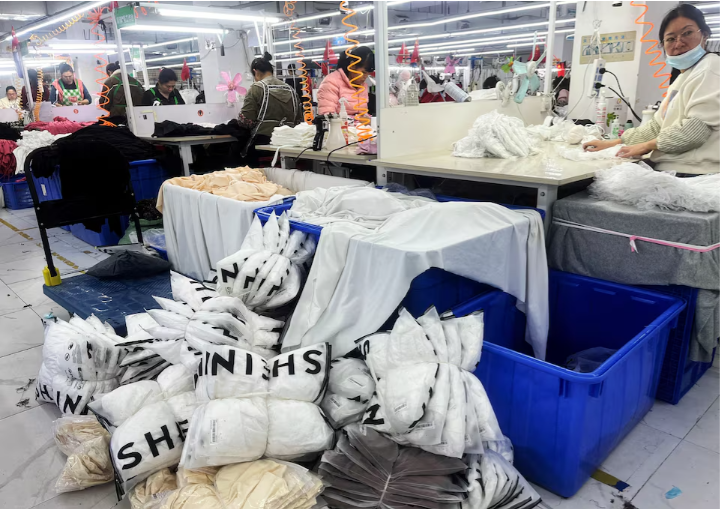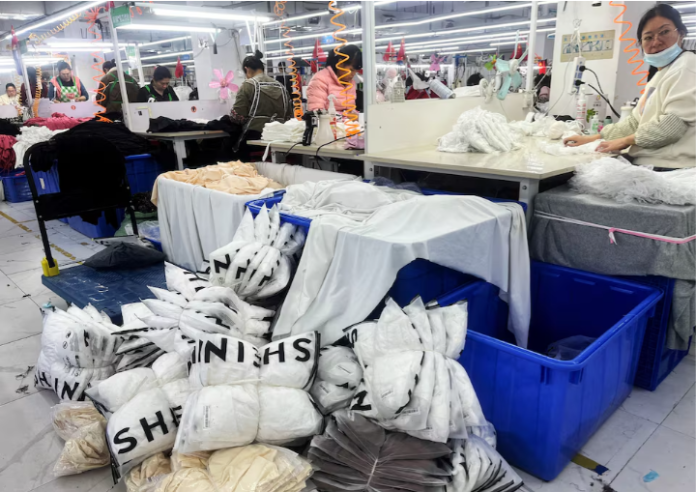In a surprising move that could reshape online shopping and global trade dynamics, the U.S. government has drastically reduced import tariffs on low-value packages from China. Starting May 14, 2025, the tariff on these goods—commonly known as de minimis shipments—will be cut from a steep 120% down to 54%, according to a White House executive order.
This announcement follows a broader U.S.-China trade agreement sealed over the weekend in Geneva, which signaled a cooling of trade tensions between the world’s two biggest economies. While the joint statement from the Geneva talks did not mention de minimis tariffs specifically, the White House later confirmed the new rules.
The de minimis rule applies to goods valued at $800 or less shipped via postal services. These small parcels—mostly clothing, gadgets, and accessories—have become a key channel for fast-fashion giants like Shein and discount marketplace Temu. Previously, these packages entered the U.S. duty-free, making them extremely attractive to American consumers seeking affordable options.
But things changed in February, when former President Donald Trump ended the duty exemption. Under his order, these parcels were set to be taxed at 120% of their value or charged a flat fee of $200—triggering outrage among retailers and consumers alike. The new rollback not only halves the tariff to 54% but also keeps the flat fee at a more reasonable $100.
Logistics providers now have the option to choose between paying the percentage fee or the flat rate per parcel. These costs are typically prepaid by Chinese sellers, meaning the new order could help stabilize consumer prices—at least for now.
This is big news for the U.S. e-commerce market. More than 90% of all small packages entering the U.S. do so under de minimis, and over 60% of those come from China. In 2024 alone, China exported $240 billion worth of such products, making up 7% of its total exports and contributing 1.3% to its GDP.
However, not everyone is optimistic. Jianlong Hu, CEO of Chinese e-commerce consultancy Brands Factory, noted that a 54% tariff is still high enough to make companies cautious. “The golden age of shipping small packages from China to the U.S. is clearly over,” he remarked.
Fast-fashion retailer Shein, which relies on speed and airfreight to deliver trending styles, may be hit harder than Temu. Delays could push consumers to abandon carts if delivery timelines stretch too long.

The de minimis loophole has long faced criticism in Washington. Lawmakers from both parties have argued it lets Chinese goods flood the U.S. market unchecked, undercutting local manufacturers and enabling smuggling, including illicit drugs. For context, the EU’s de minimis threshold is just 150 euros—far more conservative than the U.S.’s previous $800 exemption.
With the trade truce in place, U.S. and Chinese tariffs will remain reduced for at least 90 days—giving retailers a window to restock and strategize. Experts expect companies like Shein and Temu to start moving inventory in bulk to U.S. warehouses while eyeing expansion into less risky markets.
In a related development, China has reportedly lifted its ban on Boeing aircraft deliveries, adding momentum to the easing of trade tensions.
What does this mean for consumers? Short-term relief on prices, continued access to budget-friendly products, and possibly faster delivery—though all eyes remain on how long the peace will last.



